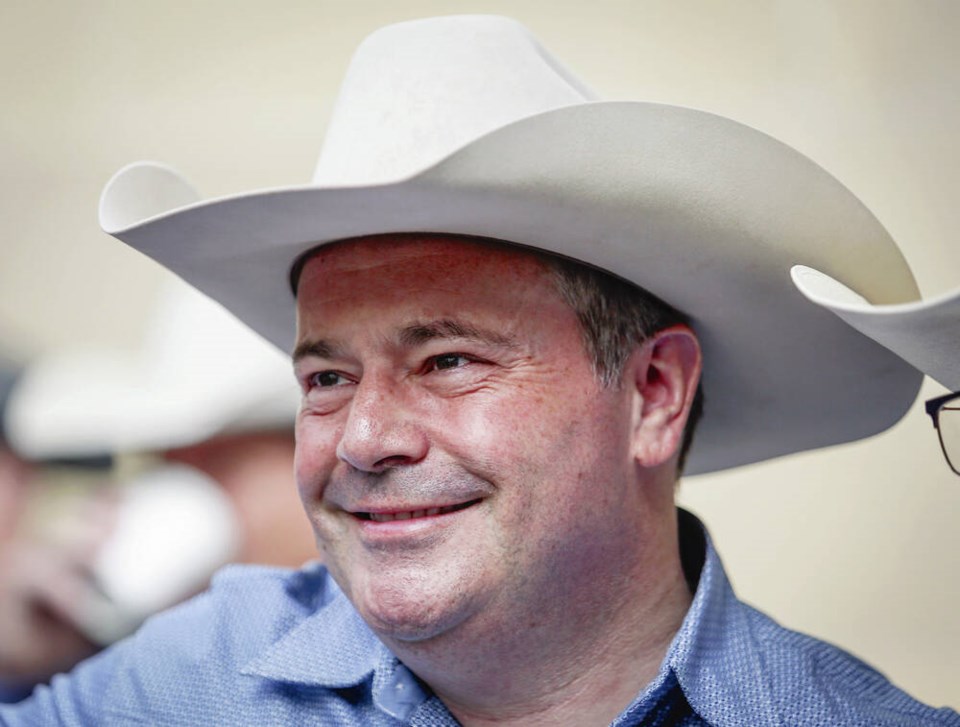On Monday, Albertans will hold a referendum on whether equalization payments should be abolished.
Those payments are provided for in the Constitution Act. Their purpose is to ensure that each of the provinces can offer “reasonably comparable levels of public services at reasonably comparable levels of taxation.”
However, even if our neighbours agree that equalization payments should be abandoned, there is next to no chance it will happen. Amendments to the Constitution require the assent of Parliament and at least seven provinces representing 50 per cent or more of the population.
Since more than half of the provinces benefit from equalization payments, the outcome is a foregone conclusion.
Back in June, when the referendum was being drawn up, there was speculation that its real purpose was to gain bargaining leverage with Ottawa.
Premier Jason Kenney’s administration opposed a good part of the federal government’s agenda, in particular energy policies like raising the carbon tax. Picking a fight with Ottawa has always been popular in Alberta.
Yet if the goal was to get Prime Minister Justin Trudeau to relinquish some of his projects, it failed. Trudeau refused to alter course.
It may also be that Kenney, whose approval rating has plunged to just 22 per cent, is hoping to reverse that trend by holding the referendum.
While he must know a yes vote will be largely ignored across much of the country, the premier may believe he can use that to his personal advantage — the little guy who came out fighting.
Nevertheless this hope, too, seems doomed to fail. Kenney’s low popularity standing has nothing to do with equalization payments.
Rather, it has everything to do with the widely held view that he and his government have mishandled the COVID crisis.
The province’s ICUs are overflowing, surgeries are being cancelled and medical staff are crying out for help. Military support is being mobilized to help transfer patients to other parts of the country.
The complaint against Kenney is that he has repeatedly refused the kind of lockdown measures that would help tame the outbreak. He cannot cover this failure by trying to divert attention with the referendum.
Still, there are perhaps some legitimate issues here worth discussing. When the constitutional arrangements governing our country were put in place, it was naturally assumed the federal government should have the dominant role.
In those days the provinces were responsible for a tiny proportion of the services they now deliver.
There was no publicly funded health care, little or no child care, no unemployment insurance, post-secondary education was still in a formative stage.
But as Canada’s social safety net evolved, the majority of the costs involved in running the country shifted from Ottawa to the provinces. Yet the federal government retained the lion’s share of tax revenues.
It is the one-sided nature of this arrangement that sticks in Alberta’s craw.
The recent federal election threw unintended light on this imbalance. All of the major parties made promises which, in many cases, could only be delivered with provincial support. Yet that support was too often neither sought nor given.
So yes, a re-examination of the country’s financial arrangements does make sense. Indeed, it is long overdue. As things stand, the three western provinces are basically bankrolling the others. (Newfoundland also contributes, with revenues from offshore oil.)
Yet can change be accomplished through a referendum in just one province? The answer is clearly no.
If there are to be reforms, these can only come about through broad general agreement. And that must start at the top.
Only if the federal government leads the way will anything be achieved. However, given that Ottawa has everything to lose by surrendering power over the purse, this is surely a vain hope.



